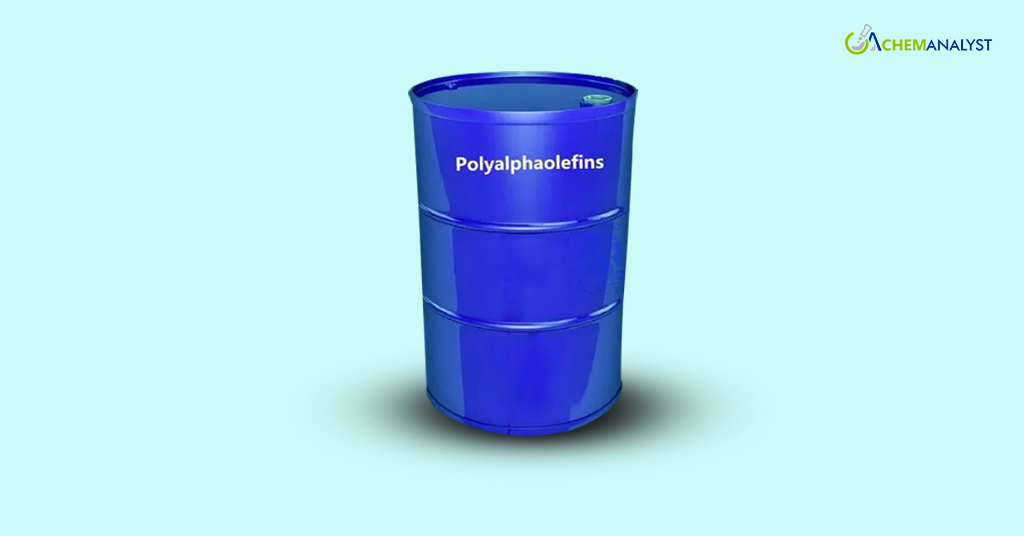Welcome To ChemAnalyst

The price of Polyalphaolefin (PAO) has been on a continuous decline since the beginning of the year 2024, primarily due to weak demand from the downstream automotive sector which led to decline the lubricant industry. This sector plays a significant role in the consumption of PAO, and the sluggish performance of the automotive industry has led to lower demand for PAO. As a result, prices have been under pressure, with a noticeable depreciation of 2% with the week ending on 16th Feb, indicating a bearish market sentiment in Germany. This decline reflects the ongoing challenges faced by the automotive sector, which has been impacted by factors such as supply chain disruptions, slowing global demand, and regulatory changes affecting the industry.
In the European market, industrial activities continue to face challenges, leading to low consumption of lubricant oil and reduced production of PAO due to weak demand. The faltering domestic demand is the primary headwind constraining the Eurozone economy. This weak demand is impacting various sectors, including the automotive and manufacturing industries, which are key consumers of lubricant oil and PAO. The overall economic slowdown in the Eurozone has led to reduced industrial output and lower demand for lubricant oil, contributing to the challenges faced by the PAO market in the region.
The sluggish trading activities for PAO among enterprises subdued the demand conditions can be attributed to several factors, including supply chain disruptions that have affected the availability of materials and components needed for production. These disruptions have created uncertainty and hesitancy among buyers, leading to a cautious approach in purchasing decisions. As a result, the market has experienced muted demand for PAO, keeping prices decline pattern despite external factors such as cost pressures and fluctuations in raw material prices.
According to the Bundesbank, Germany is likely in a recession now due to weak external demand, cautious consumer behaviour, and domestic investment being hindered by high borrowing costs. Moreover, the disruption of shipping in the Red Sea is not expected to have a significant impact due to the ample spare capacity in shipping and the relatively minor role freight costs play in the overall cost of goods.
The outlook suggests that output could decline slightly in the first quarter of 2024. If this happens, with a second consecutive decline in economic output, the German economy would be in a technical recession. This situation indicates that the demand for PAO in the lubricant manufacturing industry is likely to decline unless there is an improvement in industrial activity and the automotive sector in Germany and the broader European region.
We use cookies to deliver the best possible experience on our website. To learn more, visit our Privacy Policy. By continuing to use this site or by closing this box, you consent to our use of cookies. More info.
